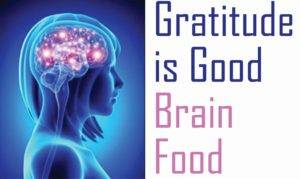Neglect gratitude at your own peril…Gratitude is a path to transformation
It’s easy to see that gratitude is the common theme through our readings.
However, in each reading we find additional teachings and challenges:
In the 1st Reading, we see Elisha – God’s prophet – refusing to accept payment for the cure.
1. it shows that Elisha didn’t consider that he did anything: it was God who did the cure.
2. The refusal of payment reveals God’s free gift of healing: causes spiritual transformation.
Naaman recognised God’s love for him personally, and was changed and transformed.
What is clearly revealed is that our God is not “a God who loves us all” with a general love, but “a God who loves us all” with a particular care and love: individually.
Again, what is revealed is how God invites each of us to be co-workers in showing God’s particular love to other individuals, so that they might, also, be transformed. We reveal that it’s God’s love (and not our selfish action to receive a reward), by refusing to accept any payment.
In the Second Reading, Paul writes from prison, in chains: we are reminded how we can still be the channel of God’s particular love for others, even while we are in prison. Paul encourages the Christians instead of feeling sorry for himself.
It recalls to my mind the sacrifice of St Maximillian Kolbe OFM Conv. in Poland during World War II. A prisoner escaped and the guards collected 10 others to be executed as punishment. One of them begged for mercy: “I have a wife and children.” Fr Kolbe stepped forward and replaced the man. They were executed. St Paul says: “If we have died with him we shall also live with him; if we persevere we shall also reign with him.” =transformation
In the Gospel, the foreigner expressing gratitude, but not the “faithful”. Which one are we? Again we see the transformation of a “foreigner”; but not the “faithful”. And here we have the core message for today: we are called to TRANSFORMATION.
The theme of gratitude throughout the readings reveals why virtues are so important for us: NOT TO KEEP GOD HAPPY, but they are a framework in which God leads us to transformation.
God’s desire is not to have everybody in church every Sunday singing and praising God. God’s desire is for each one of us to be transformed. But it is through our gratitude to God that we go to church and encourage our brothers and sisters, and are transformed & “healed”.
This week, I’ve been entertained by God and the Prophet Jonah. I really hope someone creates a Biblical comedy based on Jonah’s actions and his dialogue with God. It’s a real comedy.
I encourage you to go through the Book of Jonah in a very humorous way. It reminds us of “dialogue” between teenagers and mum/ dad. The presenting mission of Jonah (save the people in Nineveh) is a framework in which God is trying to bring about a transformation in JONAH!
And, yet, Jonah is a PROPHET and one of the chosen and saved people! Sorry for this little deviation to Jonah, but it highlights nicely the challenge that God has with me and you: we are the “saved” ones: are we the 9 lepers? But we are the ones who most need transformation.
We avoid transformation because we are afraid of losing the comfortable things we have now. But God is not comfortable when we get up every morning and do the same-old, same-old. Because that is the path to boredom, frustration and death.
When children grow used to mum and dad providing all they need, many times children forget to say “thanks”. So parents are always reminding the children: “what do you say?” Now, as adults, we may suffer from the same “sickness”: God is taken for granted.
Let’s recall the cardinal virtues: Faith, Hope, Charity (Love), Fortitude, Prudence, Temperance. I wonder why the virtue of Gratitude is missing from that list? Could this be a reason why God struggles to transform so many of us Christians?
According to legend, a young man while roaming the desert came across a spring of delicious crystal-clear water. The water was so sweet he filled his leather canteen so he could bring some back to a tribal elder who had been his teacher. After a four-day journey he presented the water to the old man who took a deep drink, smiled warmly and thanked his student lavishly for the sweet water. The young man returned to his village with a happy heart.
Later, the teacher let another student taste the water. He spat it out, saying it was awful. It apparently had become stale because of the old leather container. The student challenged his teacher: “Master, the water was foul. Why did you pretend to like it?”
The teacher replied, “You only tasted the water. I tasted the gift. The water was simply the container for an act of loving-kindness and nothing could be sweeter!”
Do we practice envy or appreciation/ gratitude. Let’s recognise transforming “containers”.
By Gerard Conlan, OMI


